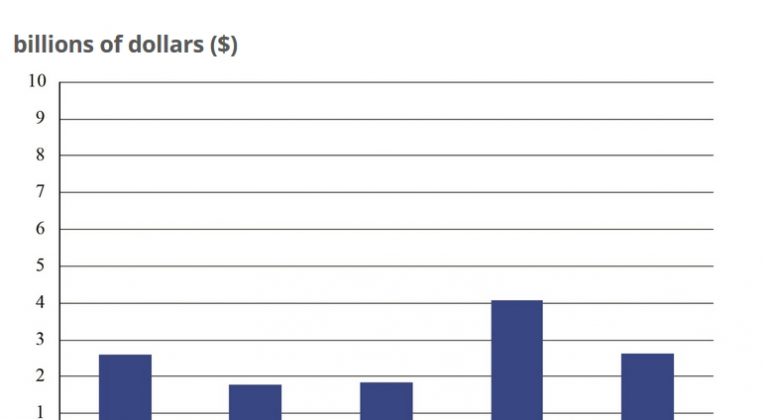Have you reconciled yourself to paying bag fees? You might as well.
The airlines are rolling in dough, and part of the reason is the fees that flyers (you?) are paying to check their bags.
According to the latest DOT Bureau of Transportation Statistics report, in the third quarter of 2017, U.S. passenger airlines collected $1.2 billion in bag fees. That’s up around 10 percent from the same period last year, and accounts for a significant portion of the carriers’ $6.3 billion pre-tax operating profit for the quarter.
The increase goes hand-in-hand with the airlines’ unbundling of fares, adding fees for services (checked bags, assigned seats, meals) that were once included in the published fare. And that unbundling has itself been compounded by the recent introduction of so-called basic economy fares, which in some cases only allow passengers to carry on a single “personal item,” like a purse or small shoulder bag. Those flyers must therefore check their roll-aboards or other normal-sized bags, and pay extra for the privilege.
Related:
The fees have been widely derided by consumers, who have nevertheless come to grudgingly accept them. But there’s likely to be a new point of aggravation, now that the Trump administration has reversed a proposed DOT rule requiring the airlines to display bag fees up front, throughout the entire booking process.
Bag fees are annoying enough; imposing them without adequate advance notice, up front, will add insult to injury.
After 20 years working in the travel industry, and almost that long writing about it, Tim Winship knows a thing or two about travel. Follow him on Twitter @twinship.
This article first appeared on SmarterTravel.com, where Tim is Editor-at-Large.


